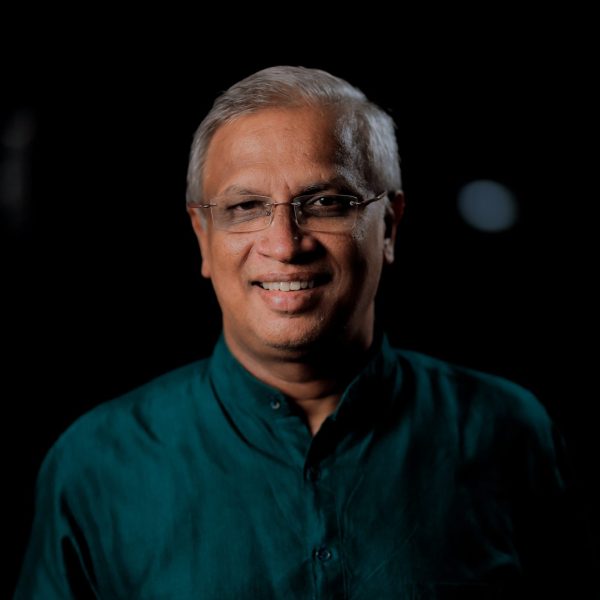
Delhi must ensure India-Lanka accord works for Tamils: Jaffna MP
MA Sumanthiran, MP from Jaffna, speaks about Modi’s upcoming visit to the country, Tamils in Sri Lanka and their demand for self-rule

Prime Minister Narendra Modi will be attending a summit in Sri Lanka’s Jaffna district on March 30. In the backdrop of the all-important visit, MA Sumanthiran, the MP from Jaffna who is also the spokesman of Tamil National Alliance and a senior lawyer, spoke to The Federal about the 13th amendment of the Sri Lankan constitution, Sri Lanka’s relations with India and Tamil Nadu, and conflicts over fishing in international waters. Edited excerpts:
Prime Minister Narendra Modi is scheduled to visit Sri Lanka later this month. What do you expect from the visit?
PM Modi will be here mainly to inaugurate the Jaffna Cultural Centre that was built with Indian assistance. Besides, he will attend the BIMSTEC (Bay of Bengal Initiative for Multi-Sectoral Technical and Economic Corporation) conference happening here at the end of March. It is true that we have been making a lot of requests to the Indian government, but I don’t know if any of our requests will be addressed during this visit. We will have to wait and see.
Watch: Modi’s Lanka visit and UP results: How does it affect TN politics?
Tamil legislators in Lanka have been seeking India’s intervention for full implementation of the provisions of the 13th amendment of the Sri Lankan constitution (devolution of powers). How important is India’s involvement in the matter?
The complete implementation of the 13th amendment is not sufficient. It’s wrong to say that it is our only demand. We rejected the provision in 1987 when it was first introduced. Though the amendment is a part of the constitution, it was not fully implemented by the government.
So, we see it as a two-step process. One is to fully implement the amendment and two is to make devolution meaningful. As of now, the full implementation part, which includes police and land powers, have not been put into effect. This needs to be done fast.
Also read: Tied with ropes, slept in toilet: Tamil fishermen recall Lankan prison horrors
Once implemented, the amendment will give Sri Lankan Tamils the right to self-rule in the north and east parts of the country. In Sri Lanka, all decisions go in favour of the majority. We want to change that by devolving the powers to the periphery.
India’s intervention is important because the whole devolution arrangement came into existence in 1987 after the Indo-Lanka accord. The Indian government must ensure that the principles laid down in the accord related to the Tamil people of Sri Lanka are fulfilled.
How do you view the dominating role of China in Sri Lanka? Is it undermining the historical relationship India has had with Lanka?
Sri Lanka has been moving closer to China for quite some time. We have opposed it. The south and west of the country are already in Chinese hands. But we have stiffly resisted the north and the east from going under Chinese control. That’s the other reason why we want the Indian government to ensure that the power is devolved so that the Chinese can be kept at bay.
Also read: Scars of civil war haunt Sri Lankan Tamils 12 years on
China’s increasing friendship with Lanka is actually enhancing our relationship with India. As a big and friendly neighbour, India is concerned about the peace and stability in Sri Lanka and about foreign forces gaining ground here. So, we will have to work together to ensure that Tamil people have a measure of self-rule and other foreign forces don’t step in and disrupt the process.
How important is it for Sri Lankan Tamils to maintain a cordial relationship with Tamil Nadu?
It is very important because of the common Tamil identity. There is a measure of self-rule for Tamils in Tamil Nadu and in India. Tamil people in Sri Lanka should also enjoy the benefits here.
What are the challenges Tamils face in Sri Lanka today, especially after the end of the civil war?
The first and foremost concern is that a political solution is still not forthcoming. Which means, the power evolution arrangement has still not been put in place. This basic necessity needs to be addressed.
Also, our lands are being taken away by the government by employing various tricks and we have protested against it. The present day government should be stopped from doing so.
Then we have this draconian law – Prevention of Terrorism Act (PTA) – which the government is yet to repeal. A lot of people had disappeared during the civil war and their relatives have not got justice yet. The present economic crisis in Sri Lanka has hit the Tamilians the hardest. Employment opportunities are almost non-existent for Tamil youths and that is one reason why many want to leave the country. They are discriminated against in government employment as well.
Why are India and Sri Lanka not able to resolve the fishermen issue – with both suffering due to arrests and tortures from either side?
That is because the challenge is framed wrongly. It is projected as a mistake of Indian fishermen crossing the international maritime boundary. For me that is not the problem. Fishermen from both countries have been doing so for many years now. The issue revolves around the destructive practice called bottom trawling, which is harmful for the marine ecosystem. This has to stop immediately. If that happens, the fishermen issue will be resolved in no time.


